When dreams take off: winning a Young Researcher Award
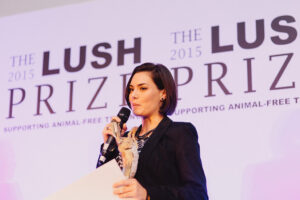
When dreams take off: my journey since winning the Lush Prize Young Researcher Award 2015
Dr Bianca Marigliani shares her story of how winning a Lush Prize advanced her career in non-animal science
A few months ago, while travelling to the capital of Brazil to defend animals at a ministerial meeting, I found myself alone in a very familiar galley of an aircraft. It was the same airline I had worked for as a flight attendant 25 years earlier. One of those moments when past and present collide, you see your entire life flashing before your eyes, and everything seems to make sense. I have always loved animals and since childhood everyone around me said I would be a veterinarian. My first job, however, took me to the skies and taught me a lot about discipline, responsibility, and teamwork, but I knew that what I truly wanted was to help animals, I just didn’t know how.
That young flight attendant could never have imagined the turns life would take. After the airline, I worked in different fields, from bartender to real estate broker, and pursued a degree in Biology, when I met Professor Thales Tréz, who introduced me to the universe of alternatives to animal use in education. Standing at that galley, I could not have foreseen that 15 years later my journey would be highly impacted by winning a Lush Prize Young Researcher Award, or that a decade after that, I would be travelling at the invitation of a government ministry to share my expertise on ethical science and appropriate regulations.
The award was not merely a recognition, it was a fundamental catalyst that shaped my entire career dedicated to replacing animal use in science. My winning project focused on a critical yet often overlooked aspect of in-vitro methods, the use of fetal bovine serum (FBS). During my Masters program, as I was being trained to prepare cell culture medium, I was intrigued by this cell culture media supplement, as it seemed to be so cruel. I was already a vegetarian, so when I researched the procedures for obtaining FBS, I was deeply disturbed. I could not accept that bleeding a calf to death was fundamental to biotechnology. I was even more shocked when, after attending a congress on alternative methods and deciding this was the career I wanted to pursue, I realised many replacement methods use FBS. My professors and more experienced colleagues told me “FBS is universal, essential, that’s how it’s always been done”. But how could we call this ethical science? Fortunately, hope arrived while I was still studying my Masters, when I took a biochemical engineering course on bioreactors and learned that adapting cells to serum-free media was a standard technical requirement. It was not for ethical reasons, but the technology exited. It was possible, so why not develop in-vitro methods without FBS?
Midway through my PhD, the same professor that showed me it was possible to replace animals in education suggested that I apply for the Lush Prize. It was a prestigious award, and this was my last eligible year as a young researcher. If I was going to take the risk, it had to be for something meaningful, something that I have been thinking about for years: eliminating FBS! As I was already working with skin sensitisation tests, and the idea was to adapt one of the validated in-vitro methods to FBS-free medium.
The year was 2015 and winning the Lush Prize Young Researcher Award changed everything. It was my first trip to the United Kingdom, my first presentation in English, the first time I talked to international researchers I admire, and I have to say, the moment when Brian May, the legendary Queen guitarist, who was attending the awards ceremony, asked to take a photo with me. I was not aware of his deep commitment to animal protection at that time, but I will never forget that moment.
The prize was the direct financial seed that provided me with the freedom and resources to make the necessary changes, including turning this into my PhD project, convincing a renowned expert in cell adaptation, Dr. Beth Augusto, to be my doctoral advisor, purchasing everything needed to implement the method, and being accepted in a cutting-edge laboratory in another state. This work culminated in the successful adaptation of the Human Cell Line Activation Test (h-CLAT) to a chemically defined, FBS-free culture medium. Earning a PhD and publishing in Toxicology in-Vitro were important academic achievements, but the Lush Prize brought me much more.
Providing me immediate international validation for my work and helping to raise awareness on the ethical and technical issues on using animal-derived products in alternative methods, it also elevated the visibility of my research and empowered me to take the message of animal-free science to a broader audience. One of the first and most challenging moments was the invitation to deliver a TEDx talk in 2016, about the search for the end of animal use in cosmetic testing. After countless lectures across Brazil and in other counties, speaking to audiences ranging from students to policymakers, one thing remains one of my greatest joys: showing that it is not only possible to do science without using animals, but we can also do science that accelerates the transition to more ethical education, research, and testing. Planting that seed and watching the same hope and determination that grew in me take root in others is deeply rewarding. And when those seeds bear extraordinary fruit, as in the case of Lorena Neves, who also went on to win a Lush Prize Young Researcher Award (in 2018), and many others, the sense of fulfilment is beyond words.
My journey continued as I transitioned from academic research to the National Institute of Metrology, Quality and Technology, implementing non-animal methods, until being invited to join the Research and Toxicology Department of the Humane World for Animals (formerly Humane Society International) in 2019. Since then, I have committed all my efforts to make significant changes to reduce animal use and promote animal-free science, mainly in Brazil, leading projects and working in different fields, from biomedical research to toxicology, from NGRA education to the regulatory field. More recently, my work has involved the approval of the cosmetic bill (Law 15183/2025) and drafting the implementing decree of the chemicals law (Law 15022/2024) to ensure it prioritises non-animal methods and requires animal testing only as a last resort.
From giving lectures to different audiences to being interviewed on Brazil’s leading national news program; from participating in several working groups and advocating for regulatory changes, to serving as the representative of the Environmental Ministry at the National Council for the Control of Animal Experimentation (CONCEA), working actively for the recognition and mandatory use of non-animal methods, I have no doubt that winning the Lush Prize in 2015 was far more than funding and recognition. It was a vote of confidence in a young researcher’s vision, the momentum I needed to move forward, the validation that gave me the courage to take on bigger challenges, and the platform that opened doors I never imagined possible.
To anyone reading this, whether you are developing non-animal methods, advocating for policy change, raising awareness on animal use, or educating the next generation, you should apply for the Lush Prize. To early-career researchers, the Lush Prize Young Researcher Award is a lasting catalyst for hope, transformation, and progress, an entry into a global community of change-makers.
From that young flight attendant who dreamed of helping animals, to an expert in animal-free science who plans to do much more for the animals, this journey has been extraordinary. That moment of standing in the aircraft galley was a powerful reminder of how far we have come and how much further we can go when we invest in science, compassion, and the courage to challenge the status quo. I can’t wait to see what the next chapter of this journey brings. Will you join us?




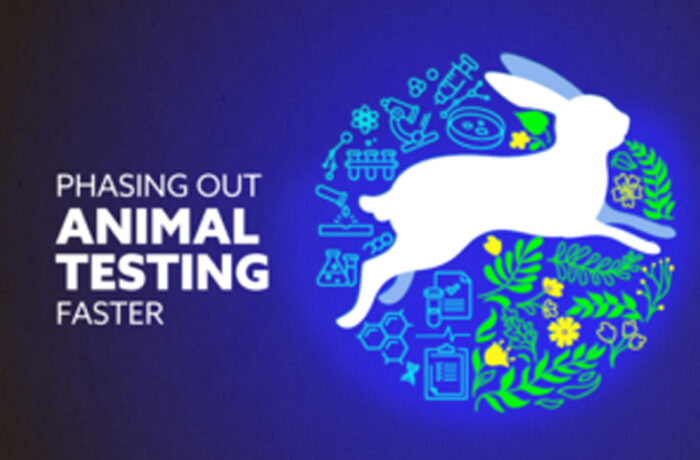
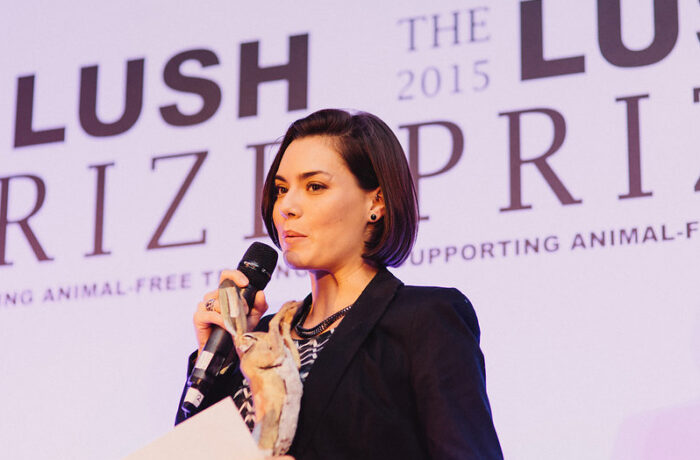
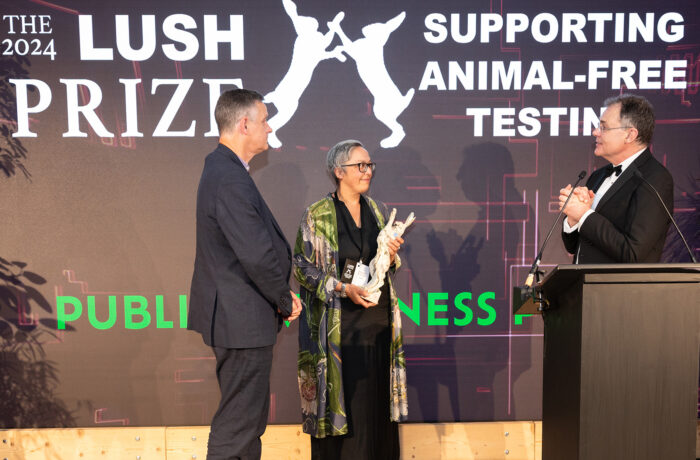
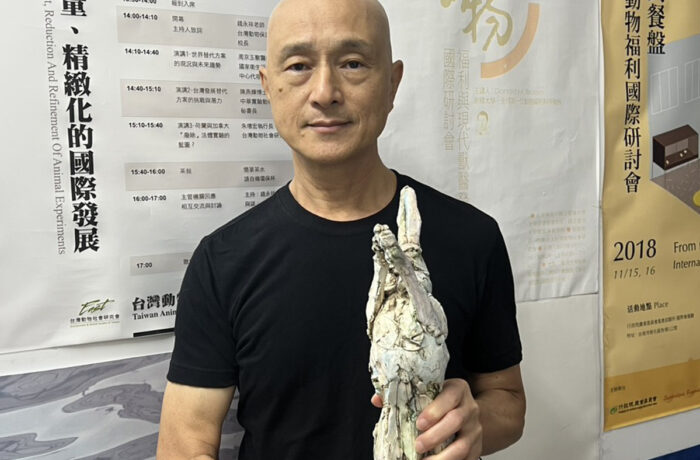
Spread the word: